Daniele Vigolo, PI
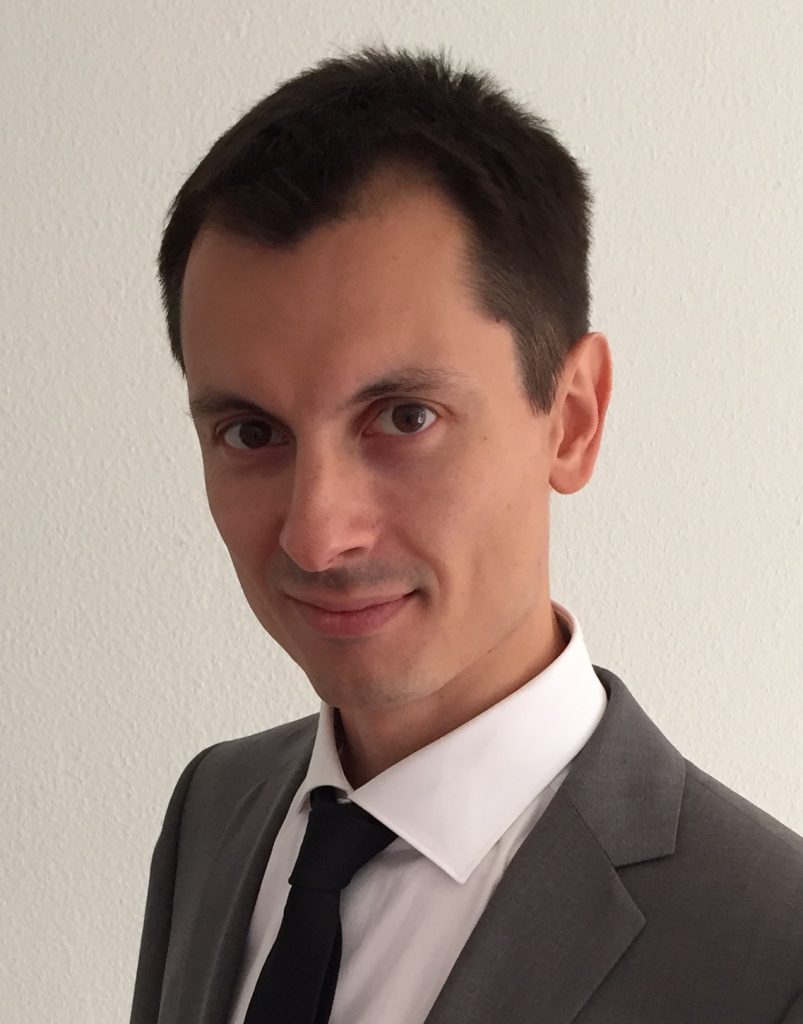
I received my Laurea (5-year Master course) in Nuclear Engineering at the Politecnico di Milano in 2006. At the same institution, in 2010, I got my Ph.D. in Radiation Science and Technology working on “Thermophoresis in complex fluids” under the supervision of Prof. Roberto Piazza. I investigated the behaviour of a colloidal suspension in a temperature gradient with optical methods (e.g., the beam deflection technique), and in microfluidic devices during my internship at Harvard University in the group of Prof. Howard A. Stone. In 2011 I moved to Princeton University working as a Postdoctoral Research Associate in the Complex Fluids Group of Prof. Howard A. Stone. Here I worked on an experimental and theoretical fluid mechanical investigation of particle-wall impacts and air-bubble behaviour in a T-junction. I also developed a microfluidic microbial fuel cell and investigated the dependence of the electric output on the shear stress induced by the flow. In December 2012 I joined the group of Prof. Andrew deMello at ETH Zürich after been awarded of the ETH Postdoctoral Fellowship (Marie Curie Actions). In July 2015 I joined the School of Chemical Engineering at the University of Birmingham as a Lecturer (i.e. Assistant Professor) and in June 2019 I have been promoted to Senior Lecturer (i.e. Associate Professor). Finally, since September 2020, I joined the School of Biomedical Engineering at the University of Sydney as a Senior Lecturer.
To know more details please check my Research page.
Also, check my Google Scholar Profile.
Post Doctoral Research Associates
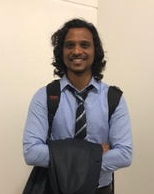 Pranav Vasanthi Bathri NarayananI am a biologist immensely interested in applying physical and engineering principles to explore complex biological processes. My current project is focused on employing hydrogels to mimic the native ECM environment of normal/diseased airways in order to investigate the mechanobiological aspects of airways fibrosis. State-of-art microfluidic devices are employed to produce thin Gellan gum hydrogel strips of varying stiffness gradients using the physical principle of thermophoresis. A variety of cell types including bronchial epithelial cells and pulmonary fibroblasts are cultured on these hydrogels in a physiologically relevant fashion with the aim of elucidating the interactions between the soft-to-stiff substrates and the cells and also between the different cell types involved in airways fibrosis. Current focus is on investigating the influence of substrate stiffness and opposing growth factors on the process of epithelial-mesenchymal transition (EMT) in bronchial epithelial cells during bronchial fibrosis.
Pranav Vasanthi Bathri NarayananI am a biologist immensely interested in applying physical and engineering principles to explore complex biological processes. My current project is focused on employing hydrogels to mimic the native ECM environment of normal/diseased airways in order to investigate the mechanobiological aspects of airways fibrosis. State-of-art microfluidic devices are employed to produce thin Gellan gum hydrogel strips of varying stiffness gradients using the physical principle of thermophoresis. A variety of cell types including bronchial epithelial cells and pulmonary fibroblasts are cultured on these hydrogels in a physiologically relevant fashion with the aim of elucidating the interactions between the soft-to-stiff substrates and the cells and also between the different cell types involved in airways fibrosis. Current focus is on investigating the influence of substrate stiffness and opposing growth factors on the process of epithelial-mesenchymal transition (EMT) in bronchial epithelial cells during bronchial fibrosis.
PhD Students
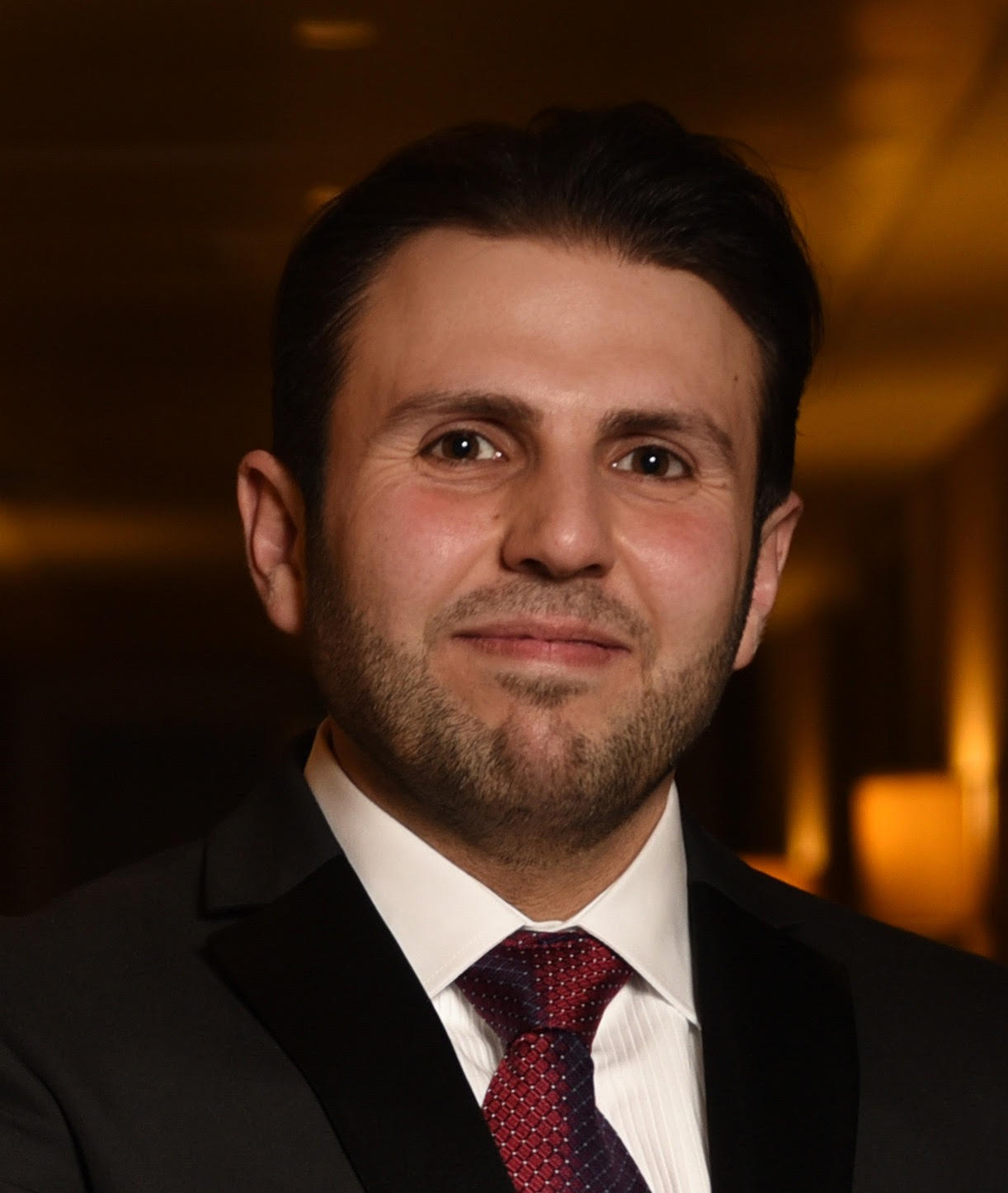 Hosam Alden Baksamawi
Hosam Alden Baksamawi
I aspire to work collaboratively alongside a multidisciplinary team to conduct projects with the ultimate goal to finding solutions to global challenges. I am currently carrying out a PhD focusing on solutions to preventing deep vein thrombosis (DVT) which affects the quality of life of many people. I aim to develop advanced microfluidic in-vitro models, in which endothelial cells will be grown to mimic blood vessels and flexible valves without the need of sacrificing animals. I will study the influence of blood flow characteristics on thrombus development based on clinical evidence. As well as, develop computational simulations validated by the results obtained from the advanced in vitro approach. In the in-silico model we will be able to finely tune the three-dimensional geometry of the vein and valves, and independently quantify the relative influence of each parameter (blood rheology, flexibility of vein and valve leaflets, bio-chemical and coagulation factors, etc.) on the insurgence of DVT.
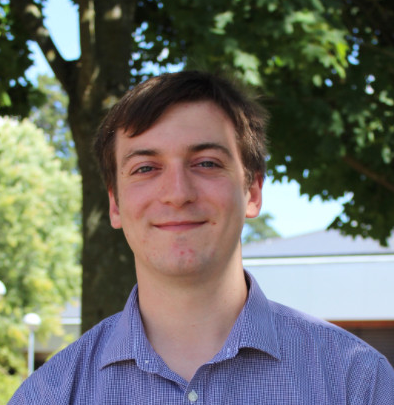 Alex Gerrow
Alex Gerrow
My project involves constructing and using microfluidic devices to establish design rules for microparticle formation of lignocellulosic extracts of plant material via antisolvent processing. Following this I will extend to studying the rheology of lignin microparticle dispersions, and the interaction with ingredients typically present in foods.
 Vasiliki Kafourou
Vasiliki Kafourou
My research interests include food processes, food microbiome and how food microbiome affects humans. My PhD relates to the observation in micro-scale and understanding, how different food processes and specifically thermal treatments, affect bacteria that are found in food. Understanding the results of existing thermal treatments in micro-scale and alter these treatments accordingly to make them more efficient, or even developing new ones, could be extremely important for safer and cheaper food products.
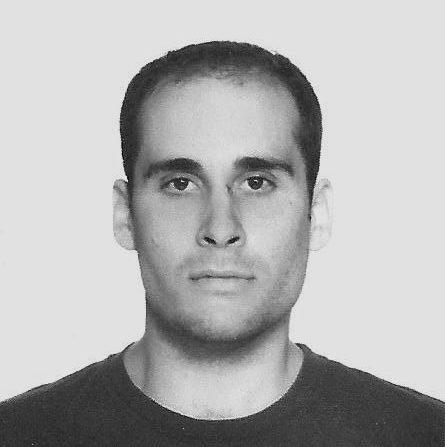 Ioannis Kiratzis
Ioannis Kiratzis
My current research revolves around surfactant behaviour on water/oil interfaces during single droplet formation. We are using Ghost Particle velocimetry in order to further elucidate the Marangoni phenomena present due to the dynamic nature of the process. Understanding surfactant behaviour in such a dynamic environment allows for the better design of chemical products and processes, while providing fundamental knowledge of surfactant behaviour on water/oil interfaces.
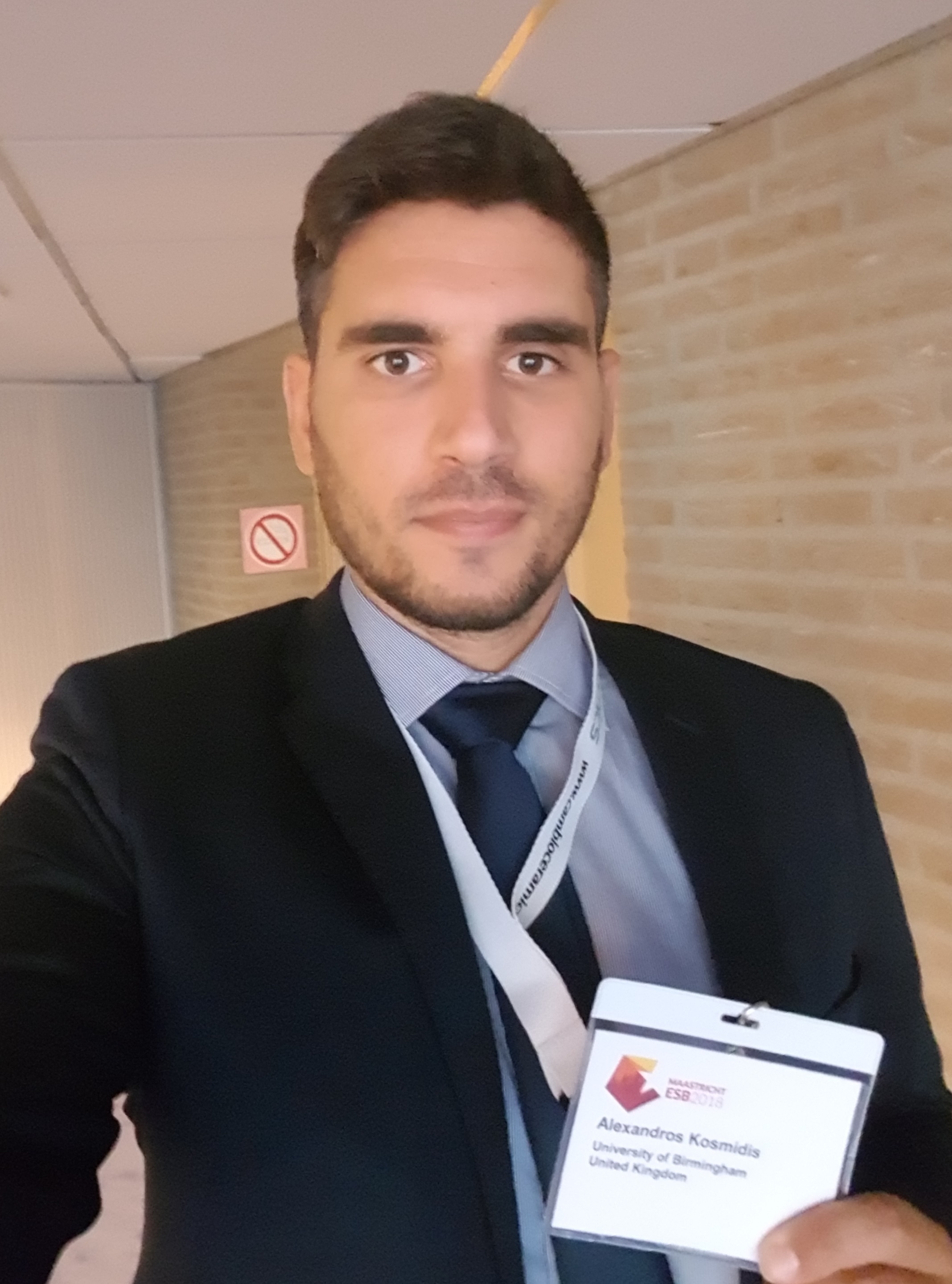 Alex Kosmidis
Alex Kosmidis
My research interests involve the manipulation of the mechanical properties of biomaterials in the microscale using microfluidic devices and exploiting the phenomenon of themophoresis. My aim is to mimic the tissue microenvironment accurately and observe cell-substrate interactions using a novel biomaterial fabrication technique.
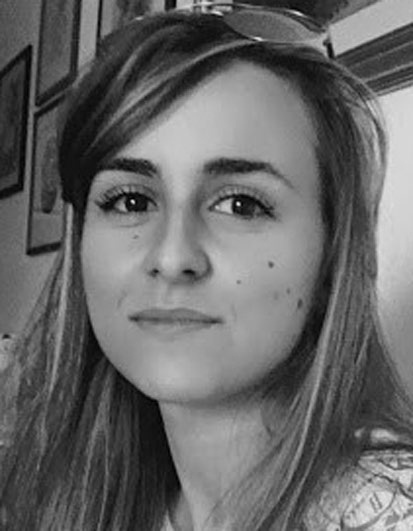 Rosalia Moreddu
Rosalia Moreddu
Rosalia is a Ph.D. student in the School of Chemical Engineering at the University of Birmingham. She previously worked on the development of microfluidic optoelectronic devices at CERN. She holds an M.Sc. degree in nanotechnology from Polytechnic of Turin. Her research interests include optical biosensors, micro- and nanomanufacturing, and lab-on-a-chip devices, for applications in personalized medicine and low-cost theranostics.
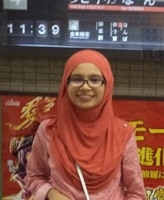 Nur Suaidah Mohd Isa
Nur Suaidah Mohd Isa
Application of droplet microfluidics for bacterial encapsulation in single and double emulsion microstructures.
PhD sponsored by the Ministry of Higher Education Malaysia
 Zoe Schofield
Zoe Schofield
I have a keen interest in understanding the physics behind biological responses. In particular I am using a microfluidic platform to investigate how mechanical and fluid properties can be triggers for thrombus formation in deep vein thrombosis. I have been successful in developing a microfluidic device for such investigations as well as using 3D printing to fabricate larger channels, more representative of a large mammal. I find organ-on-a-chip technologies fascinating as all are aiming to provide comparable physical environments to understand cellular responses for the development of therapeutics and understanding disease initiation and progression.
Master Research Project Students
Adam Tither – MEng Student – “Microfluidic investigation of thermal effects on bacteria for food applications”
Alumni
| Name | Role | Date | Moved on to |
| Dr Leslie Labarre | PhD Student | 9.2016 – 12.2019 | Marketing & Application Pack Manager at Elvesys, Paris, France |
| Hanzhen Xu | MSc Student | 6.2019 – 8.2019 | |
| Kelvin Patel | MSc Student | 6.2019 – 8.2019 | |
| Danqing Wei | 2nd year MEng student | 6.2019 – 7.2019 | |
| Prof. Li Liu | Visiting Professor | 2.2018 – 7.2019 | Associate Professor at Beihang University, China |
| Elliott Richards | MEng Student | 11.2018 – 2.2019 | |
| Baeckkyoung Sung | Postdoc | 5.2018 – 11.2018 | KIST Europe, Germany |
| Anand Patel | MSc Student | 6.2018 – 8.2018 | |
| Wenbin Shi | MSc Student | 6.2018 – 8.2018 | |
| Daiki Kusano | MSc Student | 6.2018 – 8.2018 | |
| Joseph Sloane | MEng Student | 11.2017 – 2.2018 | |
| Lewis Coulter | MEng Student | 11.2017 – 2.2018 | |
| Auguste de Bulat | MEng Student | 11.2017 – 2.2018 | |
| Rowan Liddle | MEng Student | 11.2017 – 2.2018 | |
| Chyi W. Chung | MEng Student | 11.2017 – 2.2018 | PhD at University of Cambridge |
| Adam Rachidy | MEng Student | 11.2017 – 2.2018 | |
| Alessia Jones | MEng Student | 11.2016 – 2.2017 | |
| Emily Kerle | MEng Student | 11.2016 – 2.2017 | |
| Oliver Friston | MEng Student | 11.2016 – 2.2017 | |
| Hongze Wei | MSc Student | 6.2016 – 8.2016 | |
| Juhe Zhou | MSc Student | 6.2016 – 8.2016 | |
| Sukanya Hongthong | MSc Student | 6.2016 – 8.2016 | |
| Xuetong Liu | MSc Student | 6.2016 – 8.2016 | |
| Marco Riccomi | Master thesis student | 1.2016 – 6.2016 | Alpha Process Control |
